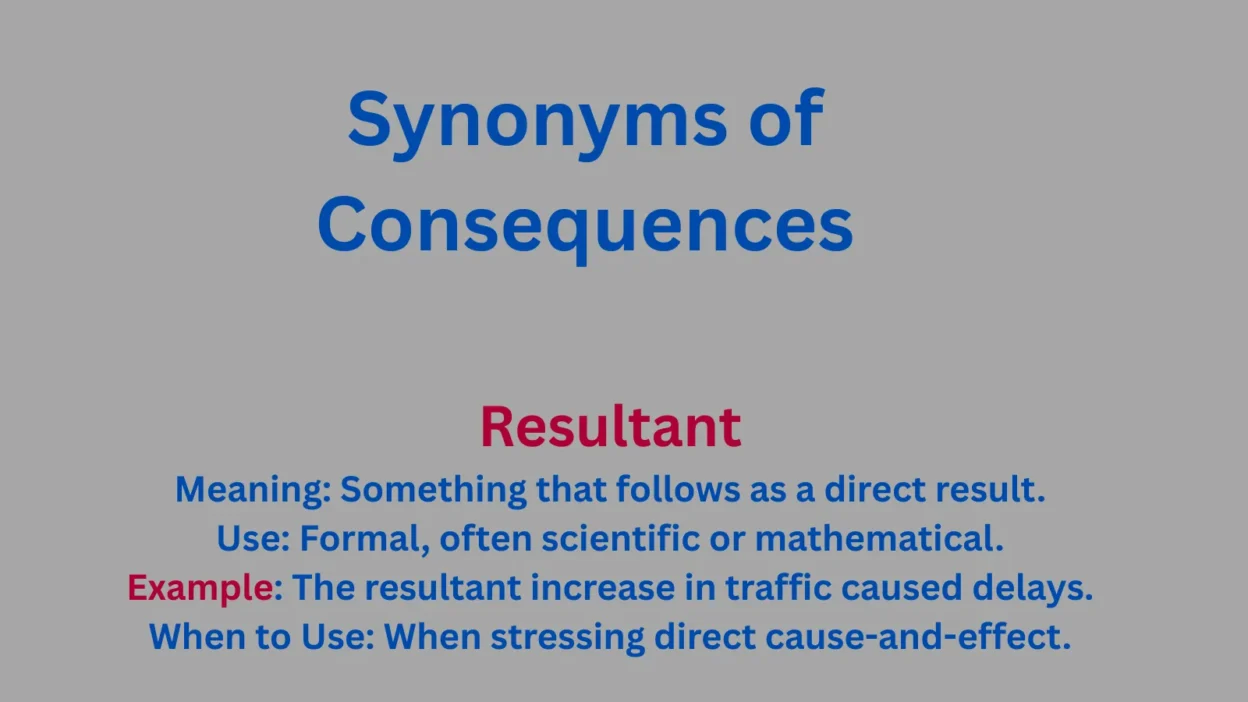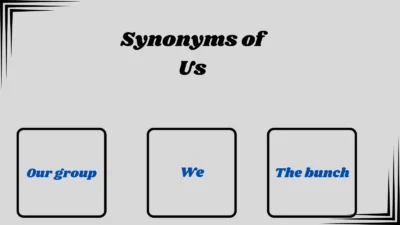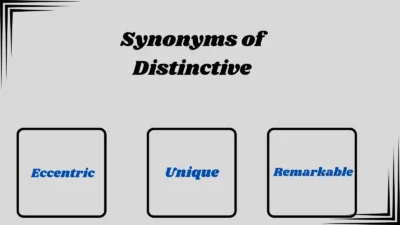Synonyms of Consequence help you express outcomes, results, or effects with more clarity and nuance. When you hear the word “consequence,” you likely think of what follows an action or decision—sometimes expected, sometimes surprising.
Whether it’s in daily life, business, or storytelling, choosing the right synonym for consequence can enhance your writing’s tone and precision.
In this article, we’ll explore 30 synonyms of consequence and explain when each word fits best.
Some emphasize cause-and-effect, others highlight impact or aftermath, and many offer emotional or formal depth. Let’s dive in!
What Does Consequence Mean?
Consequences refer to the results or effects of actions, decisions, or events. They can be positive, negative, or neutral, but often the word carries a hint of seriousness or significance. Consequences may be immediate or long-term and can shape future outcomes.
30 Synonyms of Consequence: Meanings, Usage & Examples
1. Result
- Meaning: The outcome of an action or event.
- Use: Neutral, widely applicable.
- Example: The result of the experiment was unexpected.
- When to Use: When describing straightforward cause and effect.
2. Outcome
- Meaning: The final effect or end point.
- Use: Often used in formal or scientific contexts.
- Example: The outcome of the election surprised many voters.
- When to Use: When focusing on the end point of a process.
3. Effect
- Meaning: The change caused by something.
- Use: Neutral, can be physical, emotional, or abstract.
- Example: The new policy had a positive effect on sales.
- When to Use: When emphasizing the change produced.
4. Aftermath
- Meaning: The period following a significant event, often negative.
- Use: Suggests serious or destructive consequences.
- Example: The aftermath of the storm left the town devastated.
- When to Use: For dramatic or tragic events.
5. Impact
- Meaning: A strong effect or influence.
- Use: Emphasizes force or importance.
- Example: The speech made a huge impact on the audience.
- When to Use: When you want to highlight the power of consequences.
6. Repercussion
- Meaning: An unintended consequence, often negative.
- Use: Formal, often legal or political.
- Example: The scandal had serious repercussions for the company.
- When to Use: When discussing indirect or delayed effects.
7. Ramification
- Meaning: A complex or unwelcome consequence.
- Use: Often used in legal, social, or political contexts.
- Example: The new law has many legal ramifications.
- When to Use: For consequences that create complex issues.
8. Resultant
- Meaning: Something that follows as a direct result.
- Use: Formal, often scientific or mathematical.
- Example: The resultant increase in traffic caused delays.
- When to Use: When stressing direct cause-and-effect.
9. Fallout
- Meaning: Negative aftereffects, often political or social.
- Use: Colloquial and dramatic.
- Example: The fallout from the decision split the community.
- When to Use: For social or political conflicts.
10. Sequel
- Meaning: Something that follows as a consequence, often a story or event.
- Use: Literary or informal.
- Example: The sequel to the crisis was a long economic downturn.
- When to Use: When highlighting chronological follow-up.
11. Corollary
- Meaning: A natural consequence or result.
- Use: Formal, often academic.
- Example: Increased demand is a corollary of better marketing.
- When to Use: To highlight logical consequences.
12. Chain reaction
- Meaning: A series of consequences linked like a chain.
- Use: Scientific or metaphorical.
- Example: The new policy triggered a chain reaction of layoffs.
- When to Use: When consequences trigger further consequences.
13. Aftereffect
- Meaning: An effect that happens after the main event.
- Use: Neutral, often medical or psychological.
- Example: The aftereffects of the medication lasted all day.
- When to Use: For delayed or lingering effects.
14. Byproduct
- Meaning: A secondary, often unintended consequence.
- Use: Neutral to negative, used in science and industry.
- Example: Pollution is a byproduct of manufacturing.
- When to Use: When referring to side effects or secondary outcomes.
15. Payoff
- Meaning: The final result, often with a positive connotation.
- Use: Informal, often financial or effort-related.
- Example: The payoff for hard work was a promotion.
- When to Use: When emphasizing reward or benefit.
16. Resultant effect
- Meaning: The combined effect resulting from multiple factors.
- Use: Formal, analytical.
- Example: The resultant effect of the changes was improved efficiency.
- When to Use: For multifaceted consequences.
17. Price
- Meaning: The cost or consequence of an action, often negative.
- Use: Metaphorical.
- Example: He paid a high price for his mistake.
- When to Use: When emphasizing sacrifice or penalty.
18. Outcome variable
- Meaning: The measured effect or consequence in studies.
- Use: Technical, scientific.
- Example: The outcome variable was patient recovery rate.
- When to Use: In research or experiments.
19. Up shot
- Meaning: The final result or conclusion.
- Use: Informal.
- Example: The upshot of the meeting was a delay in the project.
- When to Use: When summarizing.
20. Resulting state
- Meaning: The condition following an event.
- Use: Neutral, descriptive.
- Example: The resulting state of the company was unstable.
- When to Use: When focusing on the condition post-event.
21. Backlash
- Meaning: A strong adverse reaction.
- Use: Social, political.
- Example: The decision caused a public backlash.
- When to Use: When describing opposition consequences.
22. Conclusion
- Meaning: The final part or outcome.
- Use: Formal or narrative.
- Example: The conclusion of the investigation revealed no wrongdoing.
- When to Use: For summarizing outcomes.
23. Effectuation
- Meaning: The process of bringing about consequences.
- Use: Formal, rare.
- Example: The effectuation of the plan took months.
- When to Use: When focusing on causation.
24. Development
- Meaning: A stage in the unfolding of events.
- Use: Neutral, chronological.
- Example: The development led to unforeseen consequences.
- When to Use: When highlighting unfolding consequences.
25. End result
- Meaning: The ultimate consequence.
- Use: Informal, emphatic.
- Example: The result was a stronger team.
- When to Use: When stressing finality.
26. Reaction
- Meaning: A response to an action.
- Use: Physical, emotional, or social.
- Example: His reaction to the news was immediate.
- When to Use: When focusing on response.
27. Payback
- Meaning: A return effect, often implying retribution.
- Use: Informal, sometimes negative.
- Example: The payback for cheating was severe.
- When to Use: When consequences relate to justice or revenge.
28. Fallout effect
- Meaning: Consequences that result from fallout.
- Use: Informal, emphasizes social or political impact.
- Example: The fallout effect lasted for years.
- When to Use: When emphasizing long-term social effects.
29. Sequela
- Meaning: A medical consequence following disease or injury.
- Use: Technical, medical.
- Example: The sequela of the infection was chronic pain.
- When to Use: In medical contexts.
30. Afterglow
- Meaning: A pleasant consequence or lingering feeling.
- Use: Poetic, emotional.
- Example: The afterglow of victory lasted for days.
- When to Use: When highlighting positive lingering effects.
How to Choose the Right Synonym Based on Tone and Context
- For neutral and general writing, words like result, outcome, and effect are safest.
- Use aftermath, fallout, backlash, or repercussion when emphasizing negative or serious consequences.
- If you want to sound formal or academic, ramification, corollary, or effectuation fit well.
- For casual conversation, payoff, payback, upshot, or result, add a friendly tone.
- In medical or scientific writing, use sequela, outcome variable, or resultant.
- To express a chain of events or complexity, pick chain reaction or ramification.
- For emotional or poetic contexts, words like afterglow or price work well.
Conclusion: Mastering the Use of Consequence Synonyms
Understanding the subtle differences among synonyms for consequences empowers you to communicate more precisely. Whether you want to highlight a neutral result, a negative backlash, or a rewarding payoff, choosing the right word helps shape your message’s tone and impact.
Consider the formality, emotional weight, and context of your writing to pick the perfect synonym.
With practice, you’ll add nuance and clarity to your language, making every consequence count!




